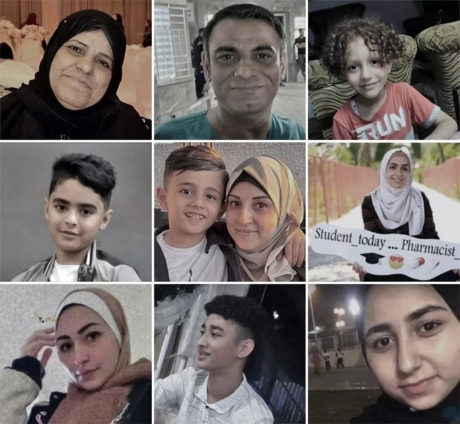
Audio By Carbonatix
The death toll in Gaza is rising as Israel presses on with its war against Hamas, following the attacks on 7 October in which 1,400 people were killed in Israel.
The Hamas-run health ministry in Gaza says more than 9,000 people have been killed since the war began.
Because of safety concerns, there are relatively few journalists in Gaza to document the human cost of the fighting.
But the BBC has been speaking to a number of families and eyewitnesses who have told us stories of loved ones who have been killed in recent days.
Yusof Abu Mousa
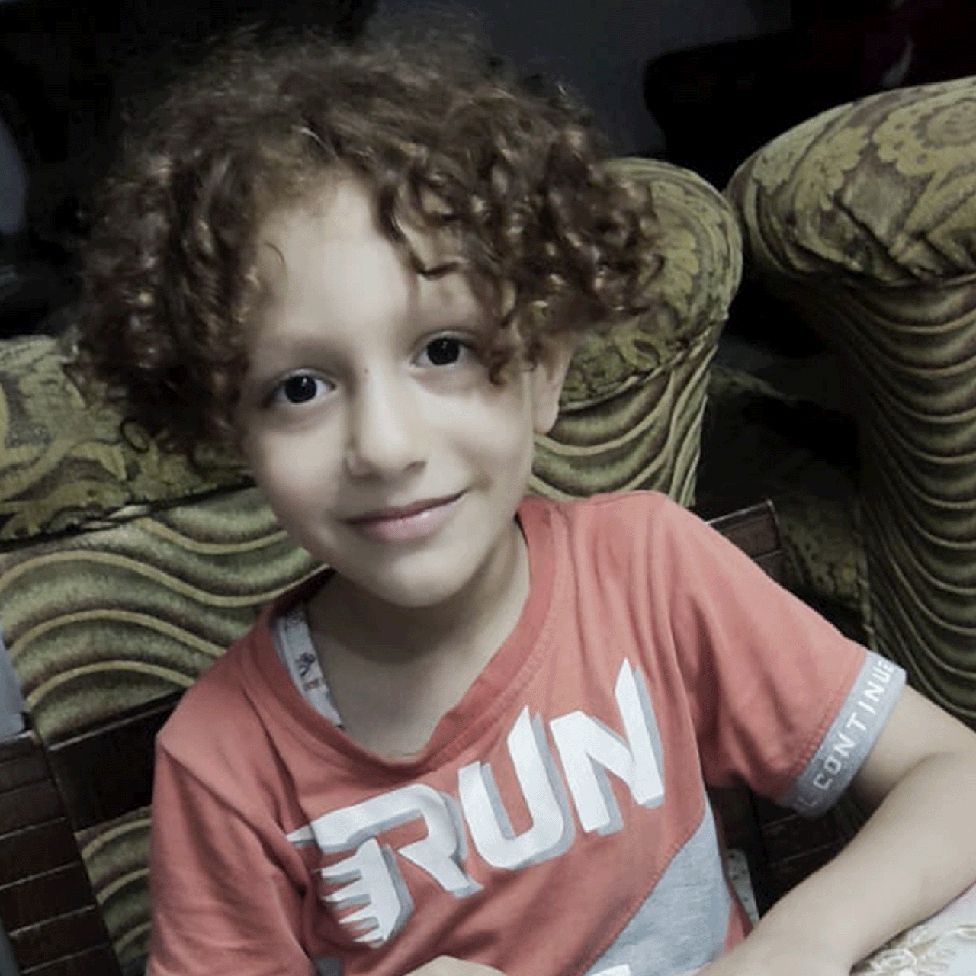
With serious power supply issues in the Gaza Strip, Yusof and his two older siblings - sister Jury, 13, and nine-year-old brother Hamed - felt quite lucky.
Their father, Mohamed Abu Musa, a radiographer at the Nasser hospital in the city of Khan Younis, had installed solar panels at their house, so the children could watch their favourite cartoons on TV.
They were settling down in front of the television on 15 October when, their father says, their home was hit by an Israeli air strike.
Jury and Hamed somehow survived, but Yusof was killed when the roof of their house collapsed.
He was seven years old.
Mohamed was working a 24-hour shift at the hospital when his wife, Rawan, entered, screaming in search for their youngest son.
She had been able to find Hamed, while rescue teams helped pull Jury out of the rubble. Jury had suffered head injuries but her parents say she is "improving".
A video showing Rawan asking at the hospital for her "handsome and curly-haired son" circulated widely on social media. But Mohamed would later find his son's body in the hospital morgue.
"The last time I saw Yusof alive was when he ran to hug me on the doorstep of our home, just before I left for work," Mohamed recalls.
"He kissed me and said goodbye after I had given him some biscuits and bananas. He wanted to be a doctor, maybe because he always saw me going to hospital for work."
Dr Midhat Saidam
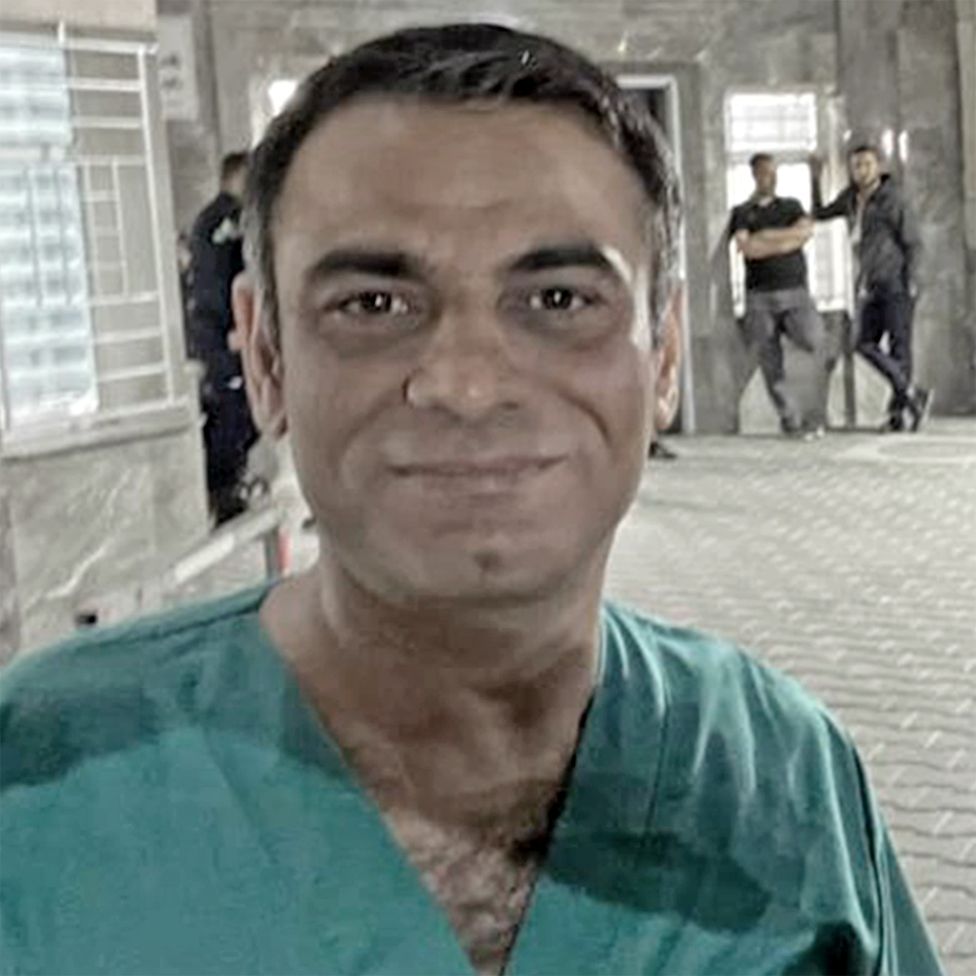
On the evening of 15 October, Dr Saidam needed a rest. The 47-year-old surgeon had not left the al-Shifa hospital, in Gaza City for more than week.
He told his colleagues he was going home for the night. But a few hours later he was killed in a strike at his home.
"This calm, funny and kind-hearted man came back to the hospital the next morning, but as a lifeless body," his colleague Dr Adnan Albursh explained.
Dr Albursh, who had known the surgeon for more than 20 years, added that his late colleague had been nicknamed "the relentless surgeon" by his peers for his dedication to the job.
A veteran of the operating room, Dr Saidam was also known as a great mentor to younger doctors.
"If any of the doctors faced any difficulties, they knew Dr Saidam was the one who would sort it out," agreed Dr Ahmed El Mokhallalati, the head of the plastic surgery department at al-Shifa Hospital.
"His death is a huge loss not only to this hospital but also to the medical profession," he added.
Nour Yousef al-Kharma
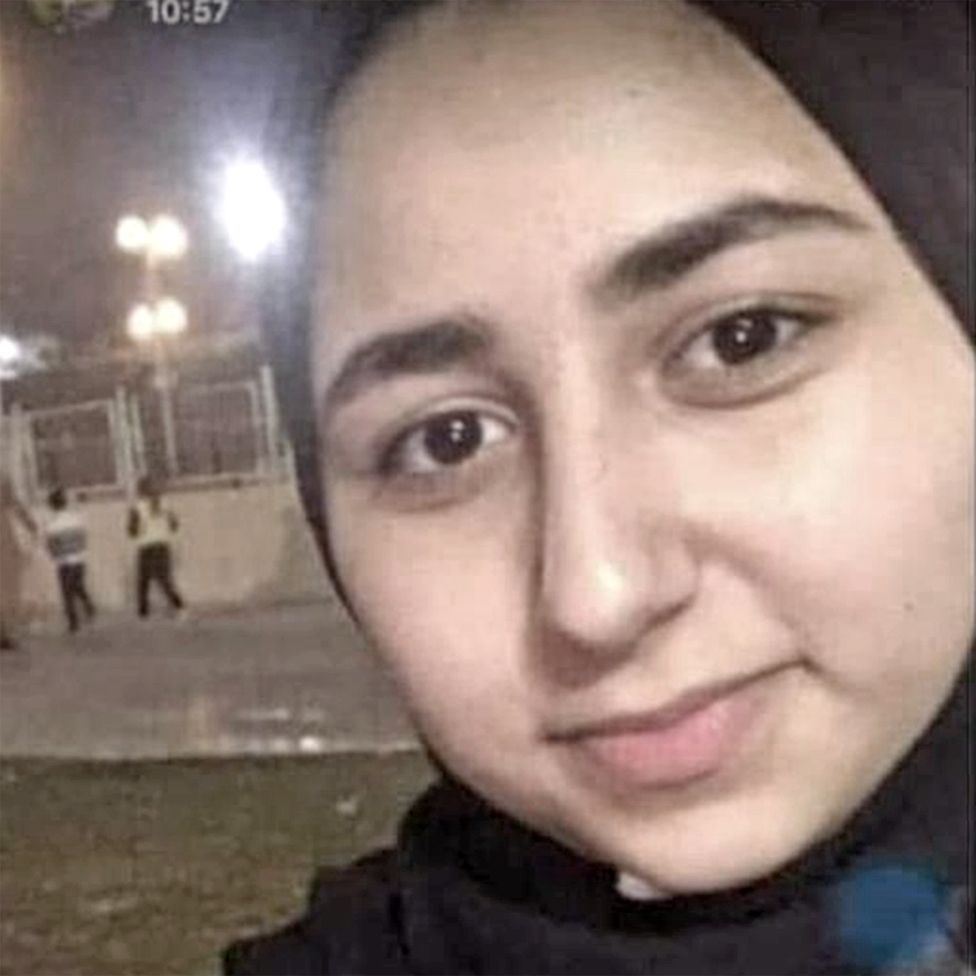
Seventeen-year-old student Nour was killed on 11 October when an Israeli air strike hit her family home in the town of Deir al-Balah, 14km south of Gaza City, according to her uncle.
Mohammed al-Kharma said his niece wanted to relocate because of the bombing and stay with relatives elsewhere.
"Her father asked her to stay in her house, which was bombed the very next morning. It was her fate," he said.
Nour was killed alongside her nephew Yazan. The pair had been playing in the living room. Her elder sisters, Ola, and Huda, who were preparing breakfast with their mother, Jamalat, survived.
Nour was in her last year of high school and always wanted to be a doctor. Her uncle said his family pulled her school bag from under the rubble. It contained books and a diary, and in one of the pages she had written: "I want to make my family proud of me and I will get high grades by the will of Allah."
Lurin Azzam Abuhalima
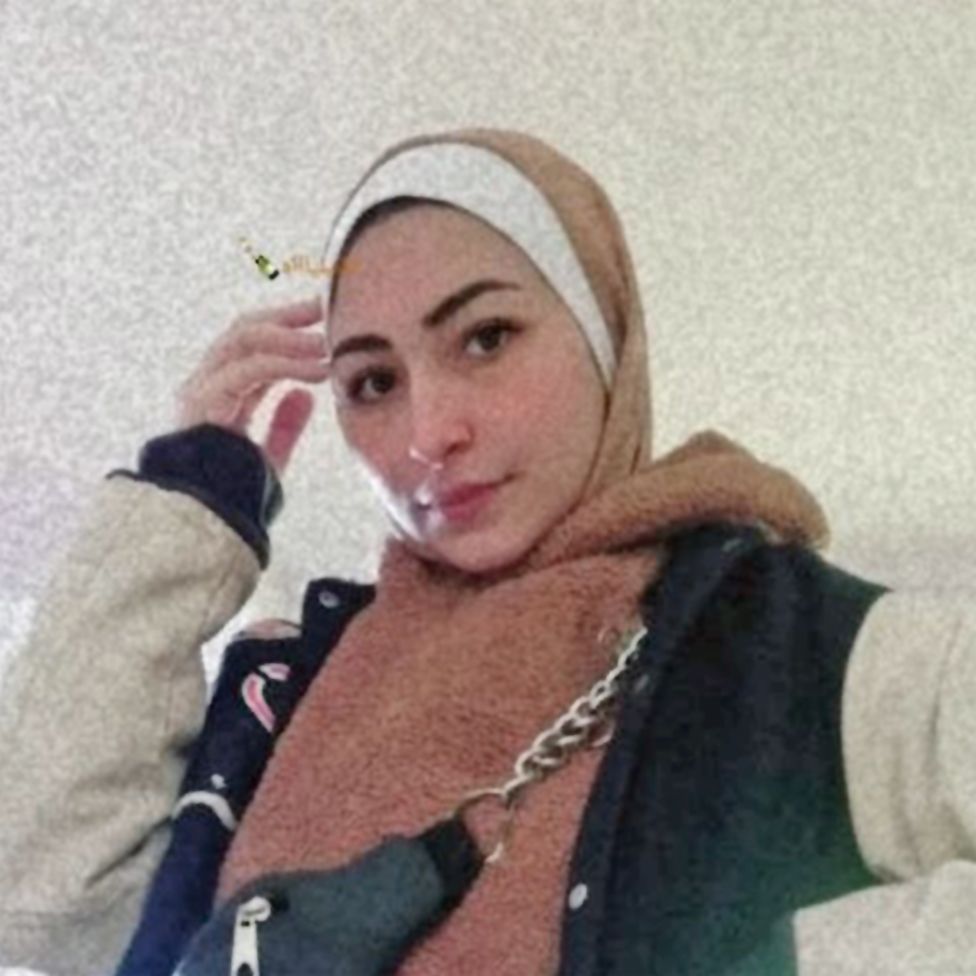
In her last communication with her fiance Khaled al-Masry, Lurin said she was exhausted from moving from place to place in search of safety from the war. The 30-year-old had just arrived at the Nusairat refugee camp, in the centre of the Gaza Strip, to stay with her aunt.
Lurin had survived two strikes, including one on 16 October that flattened the building where she lived with her parents in Gaza City.
"She told me she was going to have a shower, pray and rest," Khaled recalls.
According to her fiance, who lives and works in Cyprus, she was praying in a room when the house she was in was hit.
"She was killed while she was praying," he says.
Lurin and Khaled had postponed their wedding a couple of times due to the unstable situation in Gaza.
They were planning finally to get married in December and move to Cyprus.
A devastated Khaled said: "She is now resting forever. She used to wear a white dress, but now is wearing a white shroud."
Fekriya Hassan Abdul A'al
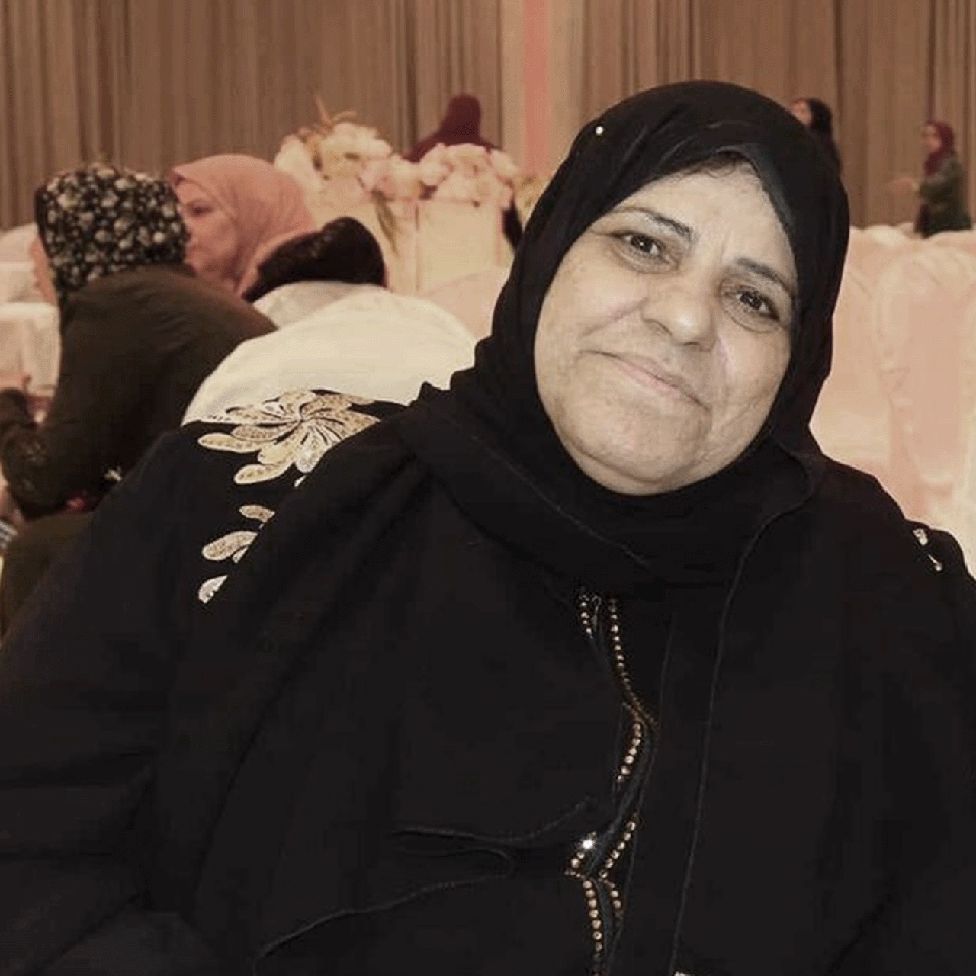
People in Gaza City's Radwan district who needed women's formal clothing would head straight to Fekriya Hassan Abdul A'al's place.
"I remember when we used to have our house full of brides-to-be and bridesmaids who would come to my mother's place to have a fitting. She was exceptionally talented," Fekriya's daughter Nevine says.
The 65-year-old tailor was killed along with two of her siblings, two of her children and two of her grandchildren, after the house they were sheltering in was hit by an air strike on 23 October.
Nevine, who was taking cover at a friend's house, says that Fekriya was devoted to her family and would host large weekly gatherings. But Nevine says her mood had been severely affected by the escalation in the conflict: "She told me in our last phone call: 'I'm very depressed and exhausted from what seems to be an endless war'."
Mazen and Ahmed Abu Assi

Brothers Mazen, 17 and Ahmed, 13 were among those killed by the explosion at the al-Ahli Hospital on 17 October.
Palestinian officials say the blast was caused by an Israeli air strike. But the Israeli military say it was the result of a failed rocket launch by Palestinian Islamic Jihad - an accusation the group rejected.
Arafat Abu Massi, the father of Mazen and Ahmed, said the two brothers were "very close to each other" but had very different personalities.
Arafat and his wife had undergone IVF therapy for eight years to have Mazen, who was at high school and wanted to become a dentist. "He was the brightest of all my children," he says. While Ahmed was described by his father as "the strongest and bravest in the family" - and the entrepreneurial one.

"He used to sell toys and school supplies in a small booth near our house," Arafat said.
His only remaining child now is three-year-old Faraj, who, according to Arafat, keeps crying and asking where his siblings are. "I told him that God has chosen them to stay in heaven. That is a better place for my two young smart gentlemen."
Salam Mema
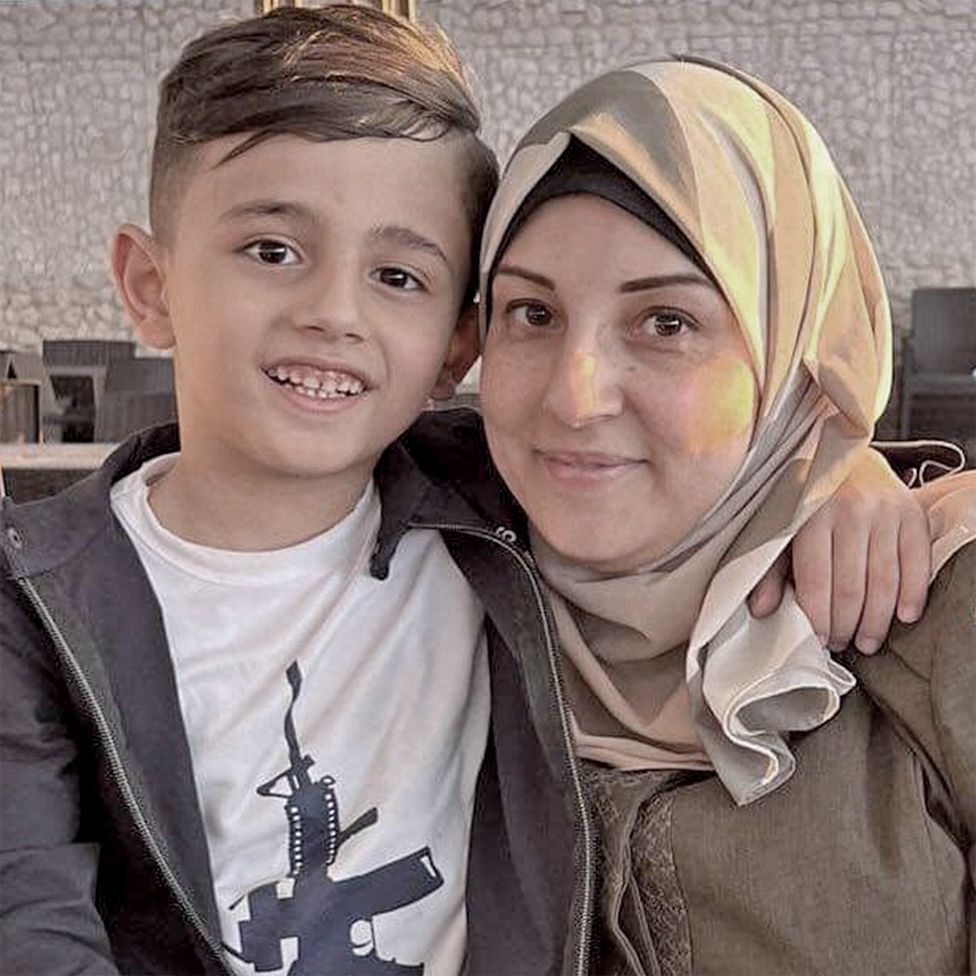
Salam Mema, a 32-year-old Palestinian journalist, was killed on 10 October when her house in Jabaliya, in northern Gaza, was hit by an Israeli air strike, her friend told the BBC.
Her husband, their two-year-old daughter Sham, their seven-year-old son Hadi, and other members of the family, were also killed, leaving their five-year-old son Ali as the sole survivor.
As of 31 October, Salam was one of 31 journalists confirmed killed on both sides, since the Israel-Hamas conflict began.
Safaa Nezar Hassouna
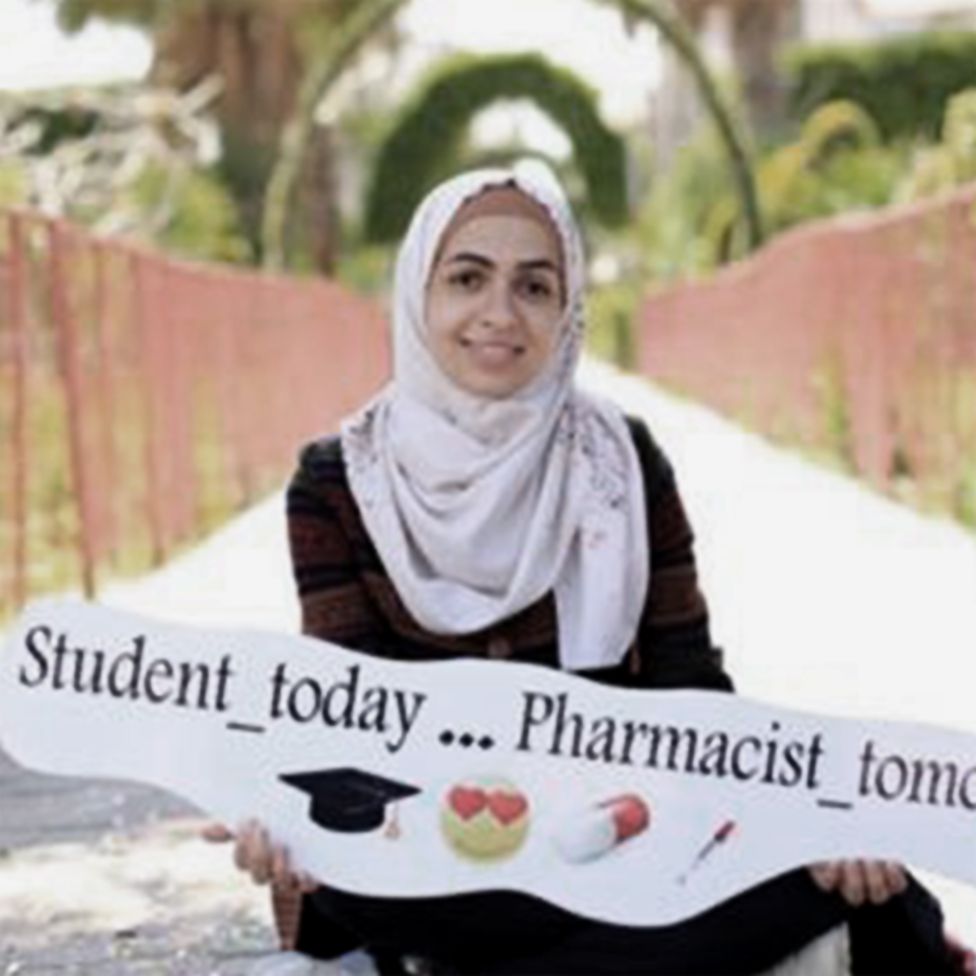
The 26-year-old pharmacist was killed in an air strike in the southern city of Rafah, on 17 October.
She was sleeping beside her three-month-old baby girl Elyana, and her husband.
Safaa's uncle and a retired medical doctor based in the UK, Omar Hassouna, said her parents managed to survive the strike but are in shock and devastated by her death.
Omar said the last time he saw his niece was in January, during his holiday in Gaza. "Safaa was polite, helpful, and loved by everyone.
"I have lost a lovely niece. Her death is unfair, as all the deaths of all of the civilians in Gaza have been."
"I would prefer to be in Gaza with them right now, I feel so hopeless here."
Latest Stories
-
Jospong Group partners Ghanaian scholars in diaspora to drive national development
2 minutes -
Newsfile to discuss over $214m loss in Gold-for-Reserves and galamsey fight under Mahama
5 minutes -
The Silence of the doer: Why strategic storytelling is the soul of governance
9 minutes -
Police nabs 3 drug suspects in Tamale
35 minutes -
The surprising benefits of a glass of orange juice
35 minutes -
31 remanded over invasion of Apamprama Forest Reserve
43 minutes -
One year of President Mahama: Leadership that rebuilt trust – Dr Callistus Mahama writes
60 minutes -
Anthony Joshua’s driver charged over Nigeria crash that killed two
1 hour -
Joseph Ayinga-Walter: Ode to Melita Happy Kutorkor Antiaye
1 hour -
Christians usher in 2026 with prayers, declarations and renewed hope
1 hour -
Ahmed Ibrahim rallies traditional, religious leaders support for peace building
1 hour -
Bus returning from 31st night prayer kills 2, injures dozens at Assin Dansame
2 hours -
Political parties must stay out of local governance – Andrew Bediako
2 hours -
Beyond Witchcraft: Why preparation, not spiritual fear, determines success
2 hours -
Margaret Korme Tetteh
2 hours

